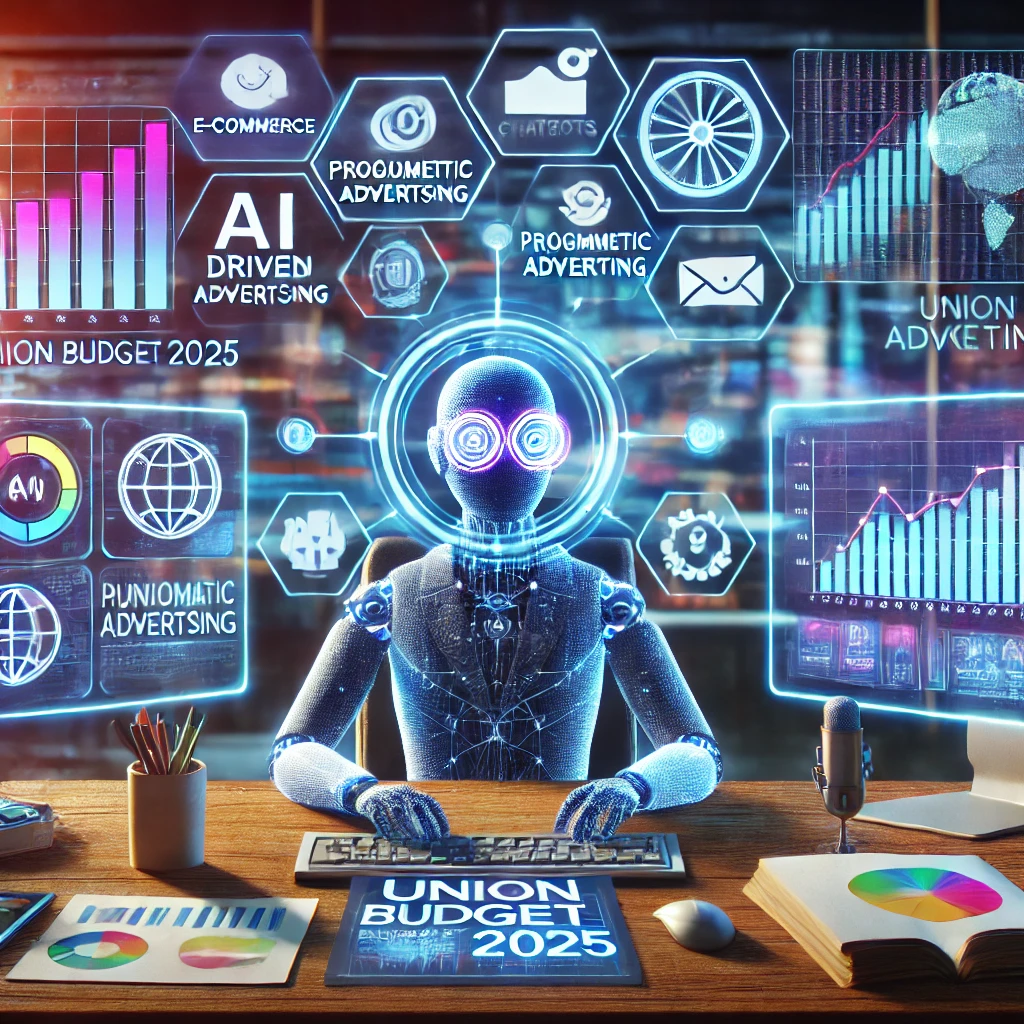The Union Budget 2025, presented by Finance Minister Nirmala Sitharaman, lays the groundwork for India’s economic growth in an era of digital transformation, sustainability, and evolving consumer behavior. Marketers must assess the impact of budgetary policies on businesses, industries, and overall market dynamics to refine their strategies. This analysis explores the budget’s implications for marketing, focusing on key sectors such as consumer goods, digital commerce, MSMEs, sustainability, and technology.

- Impact of Tax Reforms on Consumer Spending
One of the most significant aspects of the Union Budget 2025 is the revision of tax slabs aimed at increasing disposable income for middle-class consumers. By raising the tax exemption threshold to ₹1.2 million annually, the government expects to stimulate consumer demand.
For marketers, this means higher spending power across multiple categories, including consumer electronics, automobiles, fashion, and luxury goods. Brands should re-strategize their campaigns to target newly empowered consumers who are willing to spend more on lifestyle upgrades.
Key Marketing Strategies to Leverage Increased Disposable Income
- Personalized Digital Advertising: With consumers having more disposable income, targeted advertising based on consumer preferences and digital behavior can yield higher conversion rates.
- E-commerce Optimization: Online retail platforms must enhance customer experiences, including easy financing options, customized deals, and product recommendations.
- Premium Branding: Luxury brands can expand their footprint, targeting the aspirational middle class looking for premium goods and experiences.
- Digital Economy and Startups: The Growth of SEI (Smart Economic Initiatives)
A key highlight of the budget is its support for startups and digital infrastructure. The government has proposed Smart Economic Initiatives (SEI) aimed at fostering digital entrepreneurship. These initiatives include:
₹20,000 crore allocation for private sector-driven research and innovation.
Expansion of the Startup India Seed Fund Scheme to aid early-stage startups.
Tax incentives for startups to encourage digital-first businesses.
How SEI Reshapes Marketing Strategies
Marketers must adapt to an environment where SEI-driven startups disrupt traditional industries. Key approaches include:
Influencer Marketing & Digital PR: Startups leveraging government schemes will need brand visibility; digital PR and influencer marketing can establish credibility.
AI-driven Consumer Insights: Marketers should incorporate AI-driven tools to analyze consumer trends and optimize ad spending.
Performance Marketing for Startups: Cost-efficient advertising, such as SEO, content marketing, and social media ads, should be prioritized for maximum ROI.
- MSMEs and Local Businesses: The Backbone of Economic Growth
The Union Budget 2025 introduces measures to support Micro, Small, and Medium Enterprises (MSMEs) through increased credit accessibility and production incentives. MSMEs form the largest employment sector in India and play a critical role in supply chain management and B2B marketing.
Marketing Opportunities for MSMEs
Digital Enablement: The government encourages MSMEs to adopt e-commerce and digital marketing. Marketers should provide affordable digital solutions to help MSMEs establish an online presence.
Local and Vernacular Marketing: With a push toward indigenous businesses, brands should use regional languages in advertising to connect with local audiences.
Government Collaboration: Marketing agencies can collaborate with government-sponsored MSME initiatives to help brands reach new audiences.
- E-Commerce and Retail: Accelerated Growth with Policy Support
The budget extends support for e-commerce platforms by:
Enhancing the Open Network for Digital Commerce (ONDC) to boost competition in online retail.
Offering tax rebates for digital sellers to encourage small businesses to go online.
Strengthening data privacy regulations, ensuring safer consumer transactions.
Implications for Digital Marketers
- SEO and Search Optimization: Brands should invest in SEO strategies that align with ONDC’s discoverability features.
- Programmatic Advertising: Automated, data-driven advertising can enhance personalized shopping experiences.
- Omnichannel Marketing: Marketers should integrate social media, email, and mobile commerce to provide a seamless customer experience.
- Sustainability and Green Marketing: The EV Revolution
A major focus of Union Budget 2025 is sustainability, particularly in the Electric Vehicle (EV) and renewable energy sectors. By removing duties on capital goods for lithium-ion battery production, the government is making EVs more affordable.
Green Marketing Strategies for EV and Sustainability Brands
- Eco-Conscious Branding: Highlighting a company’s environmental responsibility can improve brand perception.
- Content Marketing on Sustainability: Blog posts, infographics, and case studies on green initiatives will resonate with eco-aware consumers.
- Collaborations with Eco-Influencers: Influencers promoting sustainability can drive higher engagement and brand credibility.
- Rural Development and Agri-Marketing: Bridging the Urban-Rural Divide
The government’s focus on rural empowerment includes:
Expansion of Kisan Credit Cards (KCC) to provide affordable loans to farmers.
Strengthening rural e-commerce to increase market accessibility for agricultural products.
Incentives for agri-tech startups under SEI.
Marketing Strategies for Rural Consumers
- Hyperlocal Campaigns: Brands should use localized content to engage rural consumers.
- Digital Payments Awareness: Campaigns educating farmers and small businesses on UPI and digital wallets can drive adoption.
- Partnerships with Agri-Tech Startups: Collaborating with agri-tech companies can open new B2B and B2C marketing avenues.
- Technology, AI, and the Future of Data-Driven Marketing
The Union Budget 2025 increases funding for AI and machine learning initiatives, including:
The National AI Mission to support business automation.
Introduction of a data protection law that impacts consumer data collection.
Grants for AI startups working in predictive analytics.
How AI Will Transform Marketing in 2025
Chatbots & Customer Experience: AI-powered chatbots can enhance real-time engagement.
Hyper-Personalization: AI-driven insights help marketers customize experiences.
Voice Search Optimization: With AI playing a larger role, brands should adapt SEO strategies for voice-based search queries.
Conclusion: The Way Forward for Marketers
The Union Budget 2025 lays the foundation for an economic shift that aligns with digital growth, sustainability, and localized consumer engagement. Marketers must evolve their strategies to capitalize on:
✔️ Higher disposable income leading to increased consumer spending.
✔️ Smart Economic Initiatives (SEI) boosting startups and digital-first businesses.
✔️ MSME growth fostering new B2B marketing opportunities.
✔️ E-commerce expansion transforming online retail experiences.
✔️ EV and green marketing as sustainability gains momentum.
✔️ Rural development unlocking new demographics.
✔️ AI-driven marketing strategies enhancing personalization.
By leveraging these insights and government-backed opportunities, marketers can drive business success in 2025 and beyond.
